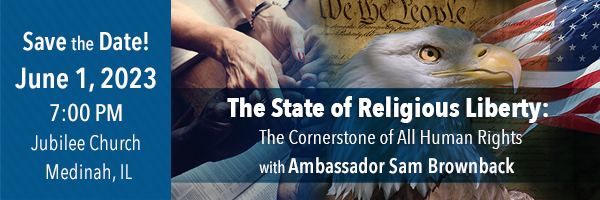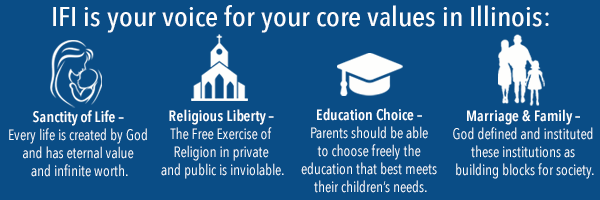Harvard Researchers: Marriage is Good (Really!)
A recent episode of Dr. Albert Mohler’s “The Briefing” highlighted a study, published in the scientific journal “Global Epidemiology” on the effect of marriage on the physical and emotional health of a group of female nurses. The study, authored by two researchers from Harvard University’s Human Flourishing Program, revealed results that a) confirm what most believers already know about marriage and b) contradict (and would likely enrage) feminists and the many progressive forces now arrayed against a traditional understanding of sex, gender, and family.
The text of the study, which is titled “Marital transitions during earlier adulthood and subsequent health and well-being in mid- to late-life among female nurses: An
outcome-wide analysis” begins by quoting anthropologist Joseph Henrich as saying, “Marriage represents the keystone institution for most…societies, and may be the most primeval of human institutions.” For Bible-believing Christians, this is the most obvious of statements, as marriage is the FIRST social construct we find in Genesis, formed before the Fall of man (and therefore “good” in the eyes of God)!
Over millennia, we can see how local communities, societies, and even nations have been built on the institution of marriage. Families are, quite literally, communities in miniature. Not only does marriage call us to care for another person as we care for ourselves, but when that union includes the rearing of children, it is the place where future adults are formed as they learn the many facets of social responsibility and engagement.
In the study, controlling for other factors, the researchers compared the health of married, divorced, and never married women. In a related Wall Street Journal article, they gave this summary of the results:
“Our findings were striking. The women who got married in the initial time frame, including those who subsequently divorced, had a 35% lower risk of death for any reason over the follow-up period than those who did not marry in that period. Compared to those who didn’t marry, the married women also had lower risk of cardiovascular disease, less depression and loneliness, were happier and more optimistic, and had a greater sense of purpose and hope.”
In other words, marriage is objectively good for the physical and emotional health of women. Incredible!
In a previous life, I studied biology/pre-medicine and went on to complete a master’s degree in bioethics. I remember going into my college studies feeling that there was a tension between science and belief in Jesus. Though I never doubted my faith, I had learned to view many scientific theories as a threat to Biblical belief. Imagine my surprise when, over and over, I saw God’s design reflected in, rather than contradicted by scientific study. From psychology to biology, from physiology to mathematics, God’s intelligent design was on display.
There are those within the scientific community who, sadly, increasingly shirk the basic scientific method in favor of bending research subjects, observations, and results to fit their pet agendas. This is not science but rather a sophisticated way to lie. In recent years, we have increasingly seen this approach to promoting a disordered understanding of sexuality, marriage, and gender. These so-called researchers are motivated not by an unbiased search for the truth, but by their feelings.
That is what makes this study from Harvard so surprising and refreshing to see. It shouldn’t be a shock to learn that real subjects prove what those with an orthodox belief in God and His Word already know, but here we are. We don’t know the researchers’ faith or lack thereof, but that’s as it should be in this context. Regardless of their backgrounds, this study appears to hold up to expectations of academic rigor.
In light of our society’s shift away from valuing and prioritizing marriage, the study’s authors seek to sound the alarm, saying, “In view of marriage’s profound effects on our sample’s health and well-being, it is unsettling to consider its rapid displacement from American life.” They continue, “Our findings, added to an already extensive literature showing the value of marriage, ought to serve as a wake-up call for a society in significant denial about this crucial element of flourishing.”
As Dr. Mohler pointed out in his podcast, the results of this study should make Christians smile, because we already know this! Through academic work like this, even those who doubt the goodness of marriage—if they’re honest—must acknowledge that it is a societal good. I am thankful that all truth is God’s truth! What a beautiful witness to the world that this reflection of Christ and his Bride can be proven to positively impact those who enter into it.
My husband and I have been married for over six years, and in that time, we’ve been blessed with two kids. I personally experience the value of and benefit from my marriage every day. I see how it’s changed me by calling me to radical self-sacrifice, breaking down my selfishness and pride, softening my heart, and providing a stable place for my children to learn their identity in our family (and in Christ), what healthy adulthood looks like, and God’s good design for us.
I will be the first to admit I don’t function in marriage perfectly. I fail, I stumble, and I often have to seek forgiveness. But my husband and I have always acknowledged and returned to the truth that the beauty of marriage is not in fleeting emotion, but in the day-by-day, minute-by-minute choosing of one another. It’s by this commitment and hard work—and all the other associated goods, scientifically-proven and otherwise—that we proclaim to the world that marriage is, in and of itself, a good!
I, for one, appreciate the bravery of these researchers and their commitment to following the evidence. As Dr. Mohler closed the podcast segment on this topic, he commented, “They didn’t tell us what we didn’t as Christians already know, but it’s fascinating to know that they know this and have the courage to say the truth out loud.”
In the last decade or so the concept of “human flourishing” has been co-opted by a progressive lobby that can no more define “human” than it can words like “sex,” “woman,” or “family.” This study is a reminder that as believers in the One who defines them all, we can and should take back the conversation about human flourishing with joy and confidence. God’s design is still good, and science proves it.











